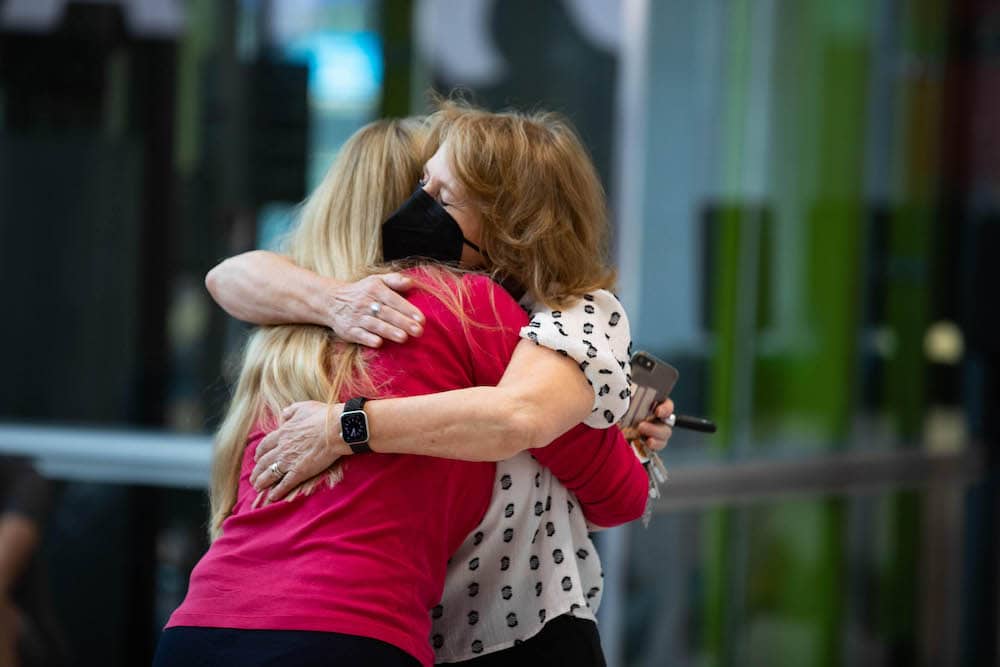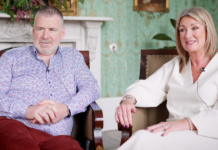
With Omicron threatening to dampen Christmas cheer, the rules on international arrivals have been beefed up.
“We want you to come home, but we want you to come home safely,” Minister of State for Overseas Development Aid and Diaspora Colm Brophy said on radio.
So what are the rules? Here’s what you need to know.
Travelling to Ireland this Christmas: What you need to know
Firstly, Ireland is open, right?
Yes it is, which is the good news – especially as there are so many Irish people abroad desperate to get home to spend Christmas with loved ones.
If you are planning on coming home, you’ll need to prove that you’ve been vaccinated or recovered from Covid-19 in the last six months. You’ll also need a negative Covid test.
Antigen or PCR?
If you’re vaccinated or have recovered from Covid-19, an antigen test will do.
Only Rapid Antigen Tests which are listed on the common EU Rapid Antigen Test list will be accepted and it must be carried out by a health professional or skilled testing personnel. So that means you can’t test yourself.
You must also take the test no more than 48 hours before you arrive in Ireland, and the test certificate you are given must indicate the time at which you took the test.
You also have the option of presenting a negative RT-PCR test taken within 72 hours of arriving in Ireland.
What about the passenger locator form?
All passengers must fill in a Passenger Locator Form before they arrive in Ireland. The only exemptions are arrivals from Northern Ireland (see below).
I’m arriving from the UK. What do I need?
Although the UK is part of the Common Travel Area, you must still prove that you’ve been vaccinated or recovered from Covid in the last six months and present a negative antigen test.
It is also advised that you take a self-administered antigen test every day for five days after arriving.
What about Northern Ireland?
If your journey starts in Northern Ireland – and you haven’t been anywhere else (including the mainland UK) over the previous 14 days, you don’t need to provide proof of vaccination or recovery. You also don’t need to fill in a Passenger Locator Form or take any test.
If you are transiting through Northern Ireland from another destination, you must comply with the rules as they apply to the country from which your journey originated.
‘Scheduled’ States
Currently, the seven scheduled States – which is another way of saying ‘high risk countries’ – are Botswana, Eswatini, Lesotho, Mozambique, Namibia, South Africa and Zimbabwe. If you’re travelling from any of these, you must present a negative RT-PCR test result taken within 72 hours of arrival, regardless of whether you have a vaccination or recovery certificate.
Passengers from or who have visited a scheduled State have to quarantine for 14 days at address declared on the Passenger Locator Form (except diplomats and transport workers).
Post arrival RT-PCR testing is required for all passengers from a scheduled State at day 2 and day 8 without exemptions.
The Irish Health Service Executive (HSE) will contact passengers to arrange RT-PCR testing using the details they provided on the Passenger Locator Form.
Individuals may only leave the address for an emergency, to leave the State, or to take a COVID-19 RT-PCR test.
And finally – worst case scenario – what if I test positive?
If you test positive you must isolate wherever you and according to the rules of that destination. It effectively puts the kibosh on your Christmas plans as you will most likely not test negative for a minimum of two weeks.
You can find all of the new rules here.




